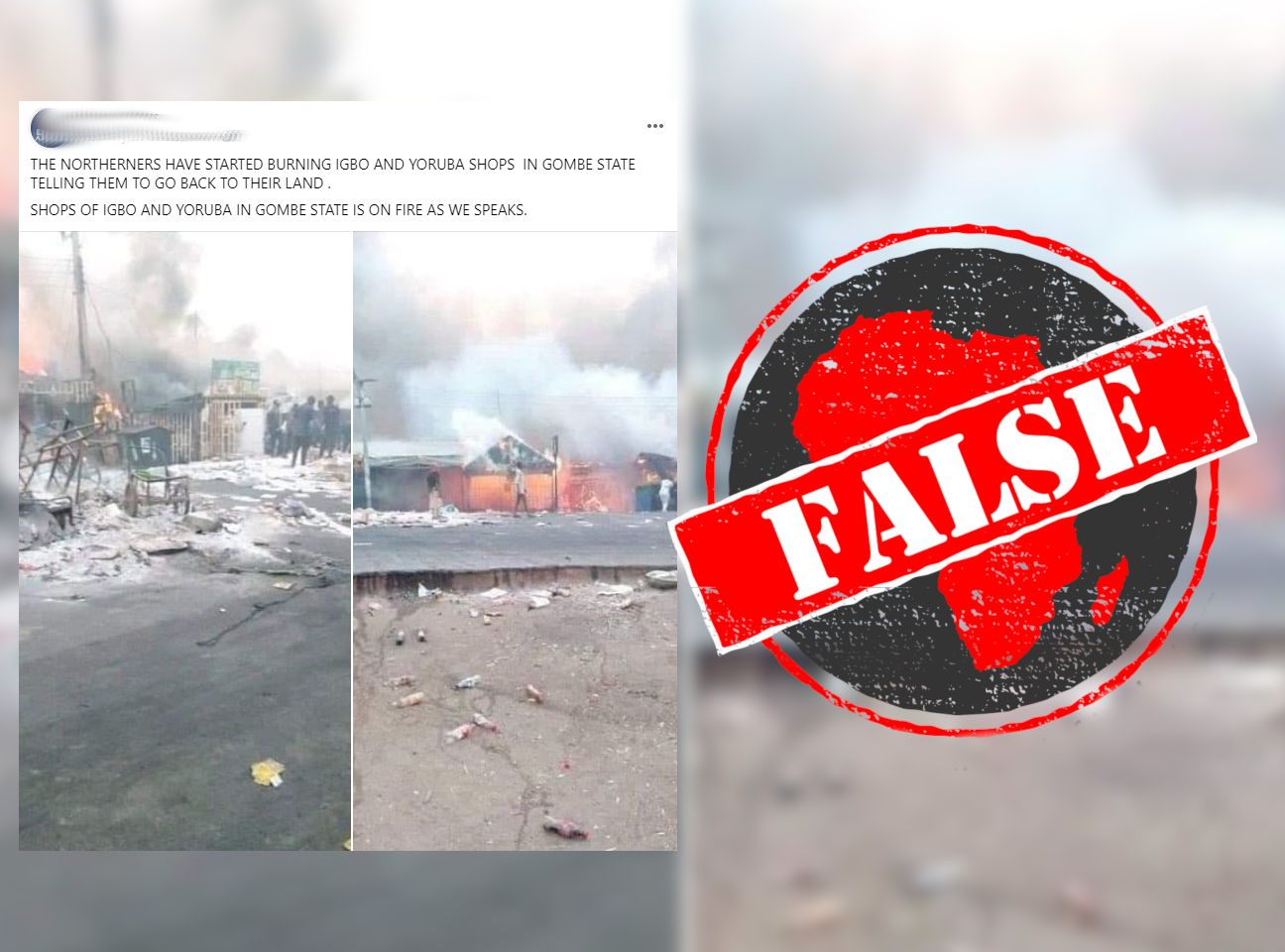A Facebook post shared in Nigeria claims that local people in Gombe state in the north of the country have attacked and burnt shops belonging to Igbo, originally predominantly from the south-east, and Yoruba people, from the south-west.
The post reads: “The northerners have started burning Igbo and Yoruba shops in Gombe state telling them to go back to their land. Shops of Igbo and Yoruba in Gombe state is on fire as we speaks.”
The post, dated 21 February 2021, has been shared over 1,200 times. It includes two photos, showing burning buildings.
Are these really shops owned by southerners, set alight by their northern neighbours?

Gombe traditional rulership crisis
A Google reverse image search of the photos shows they have been used several times to illustrate a violent crisis in Gombe state.
But the violence is reportedly because of the imposition of a traditional leader in the Billiri local government area in Gombe, and not because of tension between northerners and southerners.
The protests, which eventually became violent, were reportedly because of a delay in announcing the candidate, out of three, who was to take over the throne of the Mai Tangale chiefdom. The previous monarch died on 10 January.
The protesters accused Gombe state governor, Inuwa Yahaya, of refusing to recognise the kingmakers’ choice, Dr Musa Maiyamba.
Maiyamba is the only of the candidates who is Christian, while the other two are Muslim. The governor is also Muslim.
Media reports claimed that at least four people were killed and property destroyed in the crisis.
According to Punch newspaper, Gombe state commissioner for internal security and ethical orientation, Dauda Batari, described the situation as the “senseless killings and destruction of people’s property in Billiri with religious and political undertones”.
One of the earliest uses of the photos we could find online is in a tweet dated 20 February 2021, calling the situation a religious crisis.
The tweet warns: “The state government, security agencies and religious stakeholders should wade in before the crisis will escalate to other area councils in the state.”
Another media report on the Gombe crisis used one of the two photos in the Facebook post, as well as other photos of the protests.
The photos in the Facebook post are of protests unrelated to the rising tension between southerners and northerners in Nigeria.
Republish our content for free
For publishers: what to do if your post is rated false
A fact-checker has rated your Facebook or Instagram post as “false”, “altered”, “partly false” or “missing context”. This could have serious consequences. What do you do?
Click on our guide for the steps you should follow.
Publishers guideAfrica Check teams up with Facebook
Africa Check is a partner in Meta's third-party fact-checking programme to help stop the spread of false information on social media.
The content we rate as “false” will be downgraded on Facebook and Instagram. This means fewer people will see it.
You can also help identify false information on Facebook. This guide explains how.


Add new comment